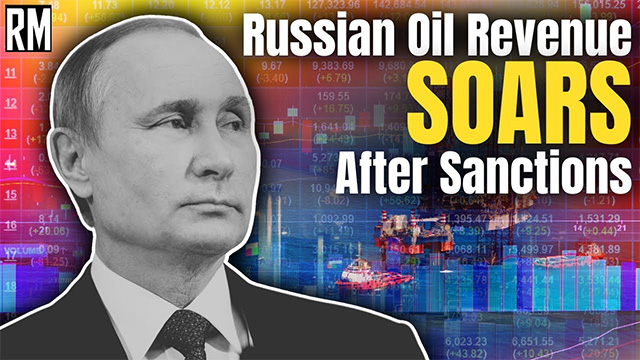
It seems that the USA has given up – they cannot enforce and control sanctions against Russian oil.
In July, a U.S. Treasury official said Reuters that sanctions were designed to keep Russian oil in the market, dampening prices for consumers while limiting oil revenues Moscow uses to finance the war in Ukraine. "We recognise that (sanctions on Russia are) going to change the shape and structure of the Russian oil markets," the official told reporters.
The official also said Washington was unconcerned that sanctions were resulting in more trades in currencies other than the dollar – after a rise in the use of yuan and UAE dirham to settle Russian oil transactions as Moscow finds itself shut out from international banks.
The number of little-known trading firms relied on by Moscow to export large volumes of crude exports to Asia has mushroomed in recent months, since sanctions over the Ukraine war led major oil firms and commodity houses to withdraw from business with producers in Russia, reporting by Reuters has found. At least 40 middlemen, including companies with no prior record of involvement in the business, handled Russian oil trading between March and June, according to a Reuters tally after speaking to 10 trading sources, along with analysts from think-tank Kpler, and analysing data from Refinitiv and the non-public books of shipping companies.
The new players have shipped at least half of Russia’s overall crude and refined products exports of 6-8 million barrels per day (bpd) on average this year, turning the little-known companies collectively into some of the world's largest oil traders, according to Reuters calculations based on private information from the 10 trading sources and Eikon data.
The network marks a major departure from the handful of well-established oil majors such as BP and Shell and top trading houses including Vitol, Glencore, Trafigura and Gunvor that handled Russian crude and oil products for decades.
There is no suggestion the trades break sanctions, although they may make it difficult for sanctions enforcement agencies in Europe and the United States to track Russian oil transactions and prices.
Earlier this month, Urals prices jumped above a price cap of $60 a barrel on Russian exports imposed by the Group of Seven nations, Australia and the European Union from Dec. 5 that was intended to punish firms involved in any trade above that level.
The reporting shows that in May, Russia, one of the world's top three oil producers, supplied record volumes to China and India, which have not imposed sanctions on Moscow and became its leading buyers after sanctions by Europe, the United States and other powers limited their own purchases.
read more in our Telegram-channel https://t.me/The_International_Affairs

 12:08 31.07.2023 •
12:08 31.07.2023 •






















